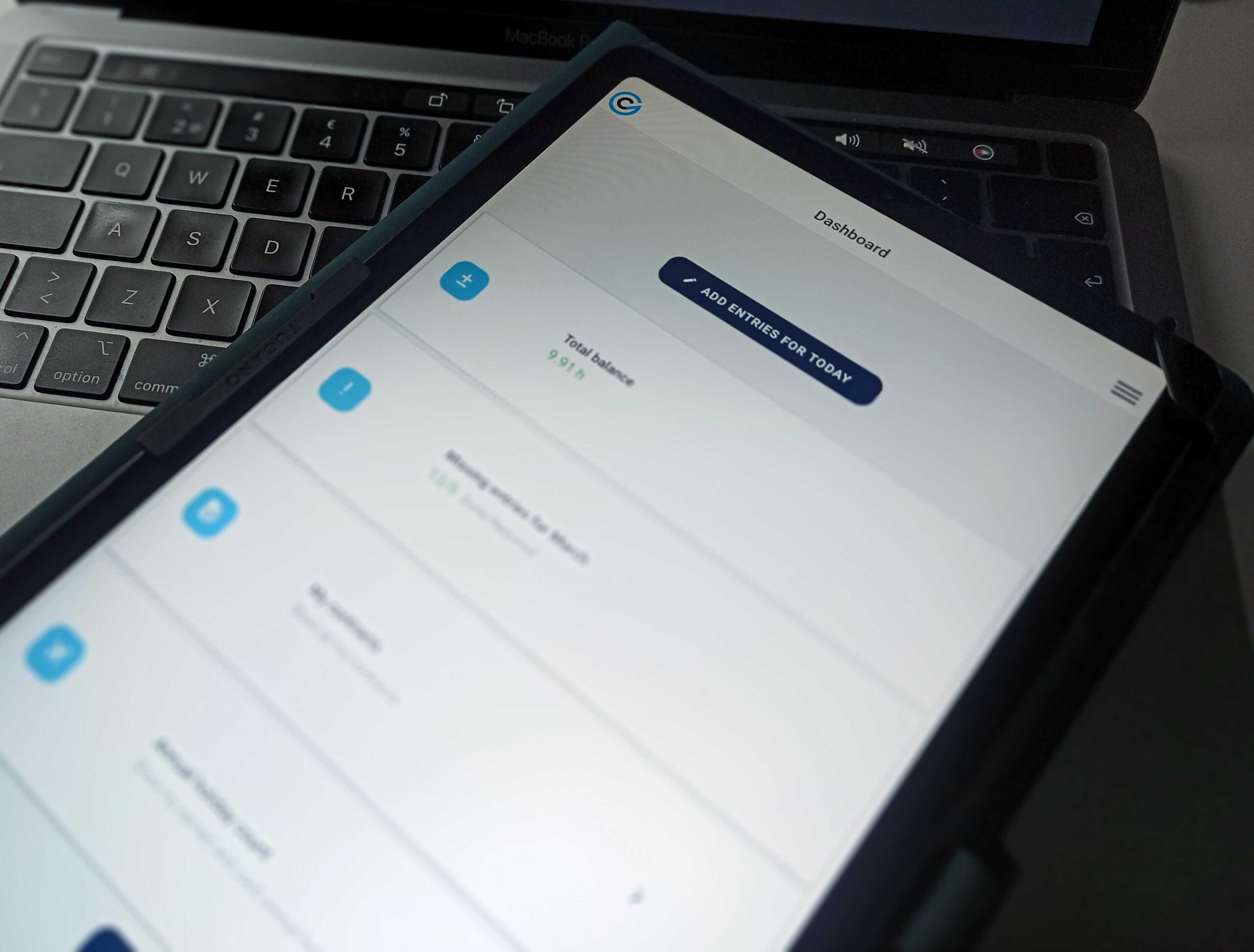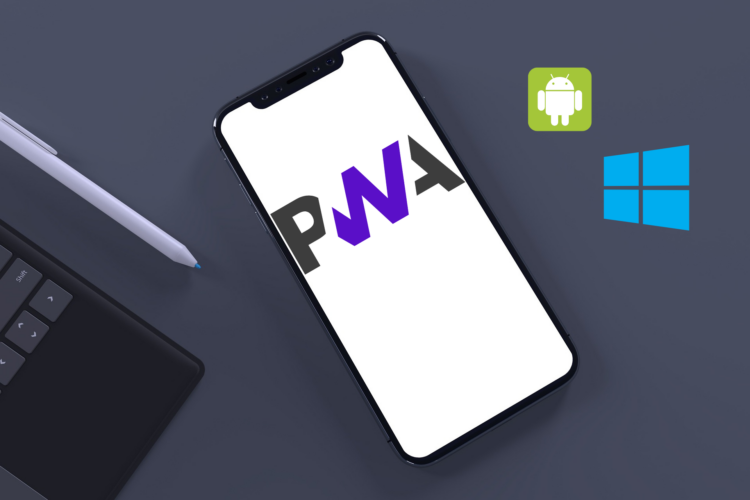In the ever-evolving landscape of digital innovation, one concept stands out as a beacon of seamless user experience and accessibility: Progressive Web Applications (PWAs). To delve deeper into this transformative technology and its impact on modern development practices, I had the privilege of conversing with Sandesh Hyoju, a seasoned software developer at CEON, a prominent player in the software development realm in Finland.
With his wealth of experience and insights, Sandesh sheds light on the essence of PWAs, their burgeoning significance in the tech industry, and their potential to redefine the digital experience landscape.
Hyojush’s interview offers a comprehensive list of the benefits and potential of Progressive Web Applications, which should be a valuable resource for any professionals who ponder the future of their digital services.
So join us as we embark on a journey through the realm of PWAs, guided by the expertise of a visionary developer.

Sandesh Hyoju works as a software developer at CEON.
Tell us about the topic you want to bring up. What is it about?
The topic I would like to bring up is Progressive Web App (PWA). These are a type of web application that utilize modern web technologies to provide users with native app-like experience in their mobile devices and smartphones directly through their web browsers.
Progressive Web Applications represent a significant advancement in web development by bridging the gap between traditional web and native mobile experiences and offering users a seamless and engaging experience across different devices and platforms.
What are the benefits of Progressive Web Applications (PWA)?
The core of the topic of Progressive Web App (PWA) lies in their ability to combine the best features of web and native mobile applications. Key aspects defining the core of PWA includes:
- App-like user experience. They provide users with a native app-like experience, including features like push notifications, offline access, full-screen mode and home screen installation prompts.
- Responsiveness. Progressive Web Applications (PWA) are designed to work seamlessly across various devices and screen sizes, providing a consistent user experience.
- Offline Functionality. PWA’s can operate offline or in low-connectivity environments by caching content and resources.
- Security. They are served over HTTPS, ensuring secure connections, data, integrity, privacy and protecting user’s data and interactions.
- Discoverability. Progressive Web Applications can be easily discovered and accessed through web browsers, search engines like Google and can be shared via URL, without the need for installation from an app store.
Why is it important to bring the functionalities of Progressive web applications up for companies that are planning a software development project?
Bringing up Progressive Web App (PWA) is important for several reasons:
- Improved User Experience. They offer a seamless, native app-like user experience, regardless of device or browser they use directly from their browsers.
- PWA’s offer broader reach and accessibility. Progressive Web Applications are accessed through web browsers and do not require installation from an app store, making them more accessible to users. PWA’s enable businesses to reach wider audiences without the constraints of specific platforms or devices.
- Cost-effectiveness and scalability. Developing and maintaining PWA can be more cost-effective compared to building separate native apps. With a single codebase, developers can reach wider users and streamline the development, maintenance and updates of their applications. This efficiency allows businesses to allocate resources effectively and focus on delivering high quality userExperiences.
- Performance and Speed. They are designed to load quickly and perform efficiently, even in low-connectivity or offline environments. They incorporate features like service workers for offline functionality, optimized caching mechanisms and progressive enhancement techniques to ensure smooth performance across different network conditions and devices.
- Future-proofing web applications. Progressive Web Applications represent the future of web development, offering flexibility, adaptability and scalability. PWA allows businesses and developers to stay ahead of emerging trends and technologies.Overall, bringing up the topic of PWA allows businesses, developers and users to understand the benefits and potential of this technology, driving innovation and improving the overall digital experience.

Among its work at the field of software development, CEON has developed an application for mobile worktime reporting.
What are the greatest added values or opportunities of Progressive Web Applications?
Progressive Web App (PWA) offers remarkable added values and opportunities for businesses and developers. It significantly enhances the user experience, with features such as offline access, push notifications and smooth performance.
PWA offers cost-effective solutions for businesses as they can use a single code base to reach wider users, streamlining development, maintenance and updates. Overall, Progressive Web Application represents an opportunity for businesses and developers to revolutionize digital experiences, optimize user engagement and drive growth in an evolving digital landscape.
What need or problem do Progressive web applications answer?
Progressive Web Application (PWA) addresses several needs and challenges. One significant problem they solve is the demand for more seamless and accessible user experience across various devices and network conditions.
It streamlines the app distribution process by bypassing the traditional app store model, allowing businesses to deploy updates and new features more effectively.
PWA optimizes data consumption and storage through strategies like resource caching and data compression, ensuring efficient usage and smoother user experience particularly for users with limited data plans or in areas with slow internet connections.
What are the most important lessons learned along the way?
The most important lesson learned along the way regarding Progressive Web Applications (PWA) is the importance of prioritizing performance, user experience and accessibility from the initial stage. Ensuring seamless loading times, optimizing for various devices and browsers, and implementing offline functionality.
Continuous improvement based on user feedback and performance metrics is the key to refining the Progressive Web Application over time. Ensuring cross-browser compatibility is essential for reaching a wide user base.
Testing Progressive Web Application across different browsers and devices helps identify and address compatibility issues early in the development process. Educating users about the benefits and features of PWA can help drive adoption and usages.
How do you think Progressive Web Applications will develop in the future?
In the future Progressive Web App (PWA) is likely to continue evolving and adopted widely. With the increasing emphasis on mobile first experiences and growing demands for seamless and accessible web apps, PWA is set to have a significant role in shaping the future of web development. As web technologies progress, PWA may incorporate more advanced features and capabilities, such as improved offline functionality, background sync, and deeper integration with device hardware like sensors and camera. There may be increased integration of PWA with operating systems, allowing them to behave more like native apps in terms of system-level interactions and functionalities.
With increasing awareness and understanding of PWA among developers and businesses, we can expect to see broader adoption across various industries and sectors. More businesses will recognize the benefits of PWA in terms of cost-effectiveness, cross-platform compatibility and improved user engagement.
About the interviewee
What is your name and professional title?
Sandesh Hyoju, software developer.
Tell us a little about yourself?
After studying the basics of IT, I decided to complete additional studies related to programming. Several years of experience in the development of online services followed, and I am no stranger to utilizing cloud platforms, as I completed the AWS Certified Cloud Practitioner certificate. I have had time to develop my skills with versatile tools such as PHP, Postgres, JavaScript, Redux, MongoDB, GraphQL, React Native and CI/CD.
How did you end up in the company?
I was in search of a job and came across a job advertisement for an opening at CEON. I visited their website, liked what I saw about the company, and decided to apply.
What are your main interests in the digitization field?
My main interests in digitisation field is with full-stack development, particularly focusing on technologies like React, Node.js, Next.js, Typescript, GraphQL, MongoDB, PostgreSQL, AWS services, Docker and implementing CI/CD pipelines.
Additionally I am passionate about learning artificial intelligence and machine learning.
Greetings to the readers and customers?
Thank you for exploring the exciting world of Progressive Web App (PWA) with us. We hope this exploration has been insightful and inspiring for you.
Whether you’re a developer, business owner or user, we extend our warmest greetings and best wishes. Keep exploring, learning and embracing the possibilities of PWA and the ever-evolving digital landscape. Best wishes from our teams!
CEON verkkosivut ja Ite wiki -profiili






















































